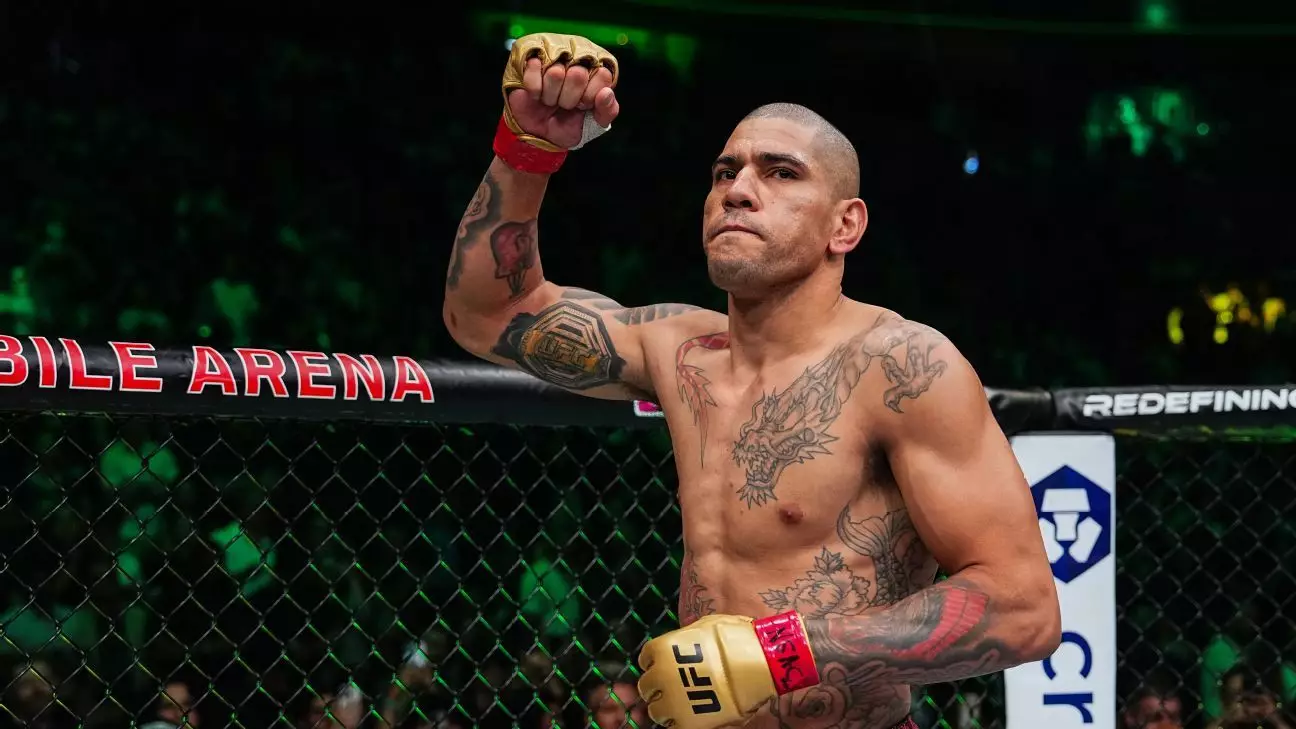As the UFC gears up for UFC 307 on October 5, fans are eagerly anticipating a title fight that could redefine the light heavyweight landscape: Alex Pereira, the reigning champion, is set to defend his title against Khalil Rountree. What stands out, however, is not just the magnitude of this fight but the astonishing frequency with which Pereira has been competing. In less than half a year, the 37-year-old has engaged in three title bouts, a remarkable feat that has made him the most active champion in UFC history. This raises compelling questions about the impact of this grueling pace on both his career and the sport itself.
Pereira’s journey to this title defense has not been without hurdles. Earlier this year, during a training camp for his July bout against former champion Jan Blachowicz, he suffered a severe knee injury that forced him to adapt swiftly to formidable challenges. As he recounted through an interpreter, Pereira faced moments of grave concern: “I didn’t know if my knee was going to surrender or not.” Despite the pain and limitations, he persevered and went on to secure a split-decision victory against Blachowicz. Still, the fight left fans questioning whether the “Poatan” they saw in the Octagon was truly indicative of his potential or merely a shadow of his innate abilities due to physical constraints.
Entering a fight with an injury is not just a testament to Pereira’s will but raises broader discussions about athlete health and safety in combat sports. The willingness to fight through pain speaks to a culture that rewards bravery and tenacity, yet it simultaneously brings to light the consequences such decisions have on an athlete’s long-term career. Pereira’s ability to maintain a championship level of performance while grappling with a serious injury is commendable, yet it also invites criticism of the pressure fighters face to compete at all costs.
Pereira’s decision to fight for the light heavyweight title against Jiri Prochazka in November 2023—even while recovering from knee surgery—was audacious. To come back and achieve the status of the fastest two-division champion in UFC history is groundbreaking. It is a reminder of how defining moments in sports often come from pushing boundaries and embracing risks. Nevertheless, while his success in this realm garners admiration, it also raises the stakes for what athletes might sacrifice in pursuit of ambition. His subsequent win against Jamahal Hill at UFC 300, marked by a first-round knockout, solidified his status but also begs reflection on the sustainability of such a career trajectory.
This relentless pace continued as Pereira sought to solidify his reign through a high-stakes rematch with Prochazka just two months later. The knockout victory in this bout once again showcased his elite striking capabilities but also pushed fans to consider the toll such an active schedule may take. Through his remarkable performances, Pereira constantly raises the bar, setting a high standard that few can consistently meet.
Looking ahead, Pereira appears to weigh his options carefully. He has expressed interest in potentially returning to middleweight to face Dricus Du Plessis and even hinted at venturing up to heavyweight. However, his persisting ambivalence about taking time off underscores the internal conflict faced by many elite athletes: how to balance the body’s demands with the desire for recognition and legacy. Pereira’s noncommittal response to taking time off following UFC 307 encapsulates this dilemma, emphasizing the unpredictability of his journey.
While his tenacity and fervor for competing stoke excitement and admiration, they also represent a broader conversation about health, longevity, and the price of success in the high-octane world of mixed martial arts. With UFC 307 approaching, the anticipation surrounds not just the outcome of the fight but also Pereira’s ability to navigate his career’s multifaceted challenges.
As he takes the Octagon once again, one thing is certain: No matter the outcome, Alex Pereira’s pursuit of greatness will continue to inspire and provoke conversations about the true spirit of competition in the UFC.


Leave a Reply